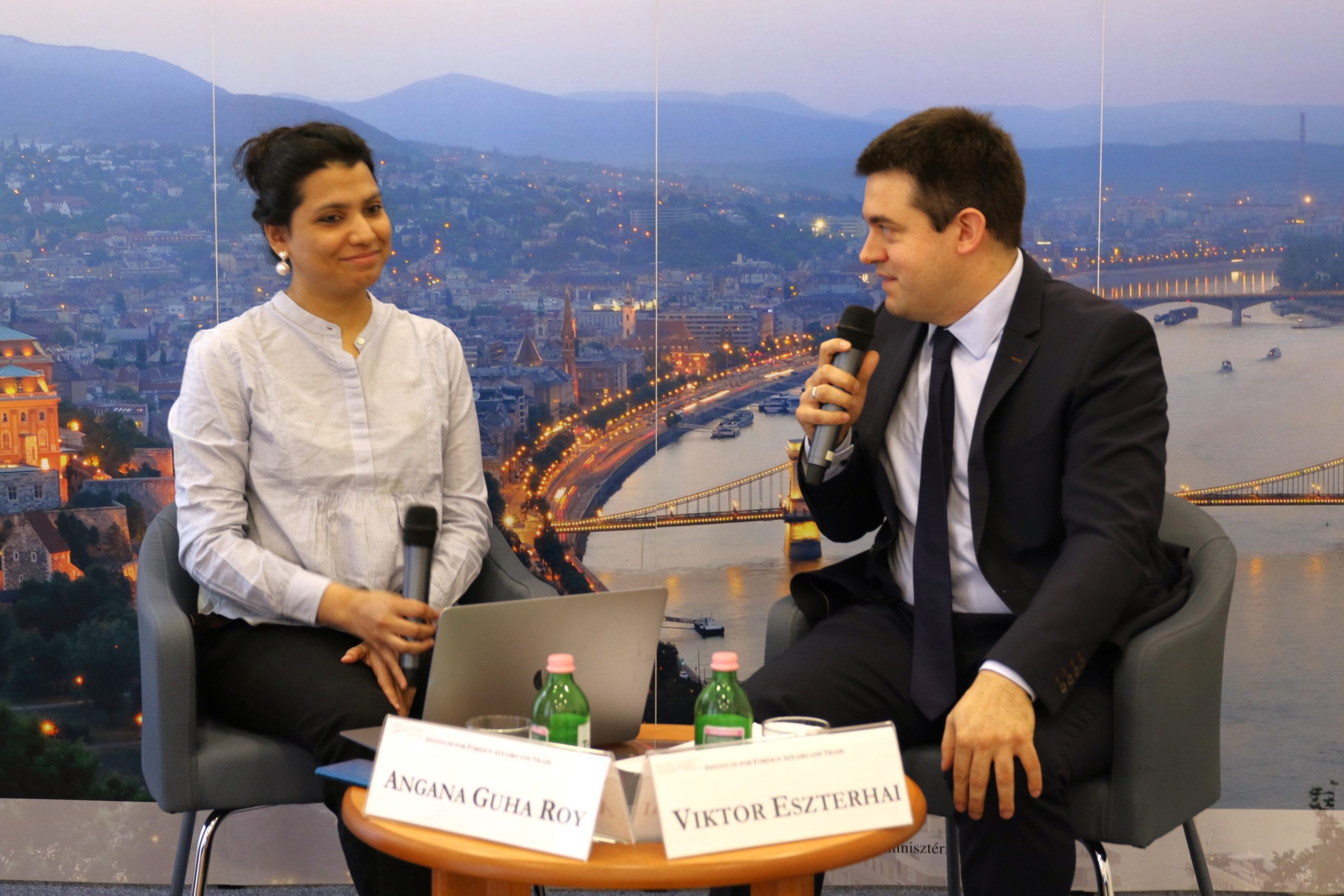On November 2, 2022, the Institute for Foreign Affairs and Trade (IFAT) organized an event with the presentation of Dr Angana Guha Roy, a research associate at Delhi Policy Group and a Think Visegrad Fellow at the Institute for Foreign Affairs and Trade. She gave a public lecture on “The Indo-Pacific region from India’s perspective.” The moderator of the event was Dr Viktor Eszterhai, Senior Research Fellow at IFAT.
In her presentation, Dr. Roy first briefly outlined the role of the Indo-Pacific region in the current world order, India’s perspective and interests, and the impact of recent events and the rise of China on this region. Finally, he outlined India’s priorities and future plans for its relations with the Indo-Pacific region
In her presentation, Dr. Roy emphasized that India is a very important player in the strategy of the Indo-Pacific region and the world not only because of its large population and trade. However, India’s character and foreign policy system is different from that of the West, as the country has a national interest in the multipolar world order, and its Indo-Pacific strategy is in line with this.
In the current world order, and after events such as the Covid pandemic, the withdrawal from Afghanistan, and the war in Ukraine that have shaken the world at large and thrown global relations into turmoil, India’s main objective remains to build relationships and foster partnerships. The rise of China has also had a major impact on India’s prospects. India’s relationship with China is a partnership, but it is strained by many factors, such as border dispute between the two countries or China’s special relationship with Pakistan and North Korea. However, China is not only India’s neighbour, but also its largest investor and a very important trading partner, so both countries need to maintain active cooperation. Both China and India believe in multipolarity and prioritize their own growth and economic development. India’s main goal is to deepen connectivity in the region, and it wants to be a guarantor of security in the region. Delhi does not have a clear, well-thought-out strategy for the Indo-Pacific region, but they share a vision of development and connectivity. Of course, they have their own challenges, but they put their national interests first, such as securing jobs for their people and economic growth. These factors take precedence in shaping their own explicit Indo-Pacific strategy.
Photos by: Institute for Foreign Affairs and Trade (IFAT)

